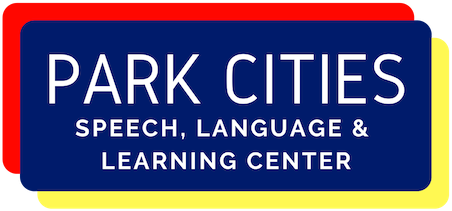Our Services
Pediatric communication challenges are our specialty…regardless of their type or severity! We strive to intervene in the most natural manner possible by providing supplemental home programs and suggested modifications. Parents are invited to observe and participate in sessions. While some challenges defy a specific label, the following summaries are a subset of the more common areas of pediatric communication disorder.
Articulation
Speech sound production is the skill most often associated with speech therapy. Although everyone is familiar with the sound of an articulation disorder, the crucial role of determining the source of the challenge is often underestimated. Effective intervention must be based upon the etiology, whether that be weak oral musculature, structural abnormalities, neurological differences or simply habit. Although some labels are often imprecise, designations often associated with articulation challenges include Childhood Apraxia of Speech, Phonological Processing Weakness, Tongue Thrust and Lisping. Careful diagnosis and timely intervention is key. Following an accurate diagnosis, much of the work falls into the hands of parents, guided by a well-trained clinician.
Language & Language Processing
Delayed or disordered language makes up the largest and most variable portion of our caseload. Language disorders are often difficult to differentiate from weaknesses in memory, cognition or general learning differences. They can occur alone or as part of a complex of challenges. Expressive challenges are often readily apparent, noticeable in a child’s sentence structure and vocabulary. Receptive language challenges impact a child’s ability to understand language, sometimes masquerading as noncompliance, poor attention and low cognition. Language intervention, particularly early intervention, can be amazingly effective.
Autism Spectrum Disorder
Children who function on the Autism spectrum are, like all children, wonderfully unique and deserve individualized treatment….not packaged programs designed to treat diagnosis rather than a child. We vow to use experience and research to treat the amazing, ever-changing child in front of us….not the child represented in a textbook. Partnering with families committed to helping their child meet his/her greatest potential is the most rewarding part of our job.
Social Pragmatic Deficits
Social Pragmatic Deficits are sometimes referred to as Semantic Pragmatic Disorder or Pragmatic Language Disorder. These challenges, historically associated primarily with autism, have grown into one of the most common continuum of challenges we see in our clinic. Children struggle to understand and use the range of important nonverbal cues in language as more and more of their communication is done without the benefit of tone of voice, inflection and facial expression. Children with social-pragmatic challenges are often extremely verbal with amazing vocabularies. These children often excel at sharing factual, concrete information, yet struggle to maintain topic, make vital social connections and use coherent spontaneous language.
Auditory Processing
True auditory processing disorder is defined as abnormal auditory perception of speech that cannot be explained by hearing loss. The diagnosis requires careful assessment of speech sound discrimination under headphones. Our evaluation involves both audiology and speech pathology to determine whether challenges with following directions and understanding language are related to weaknesses in auditory discrimination of the sound units in language (auditory processing) OR understanding the ideas expressed through language (language processing).
Voice
Voice abnormalities in children require medical input regarding potential physical contributions such as GERD, vocal nodules and allergies. This information is best gathered from the child’s pediatrician or ENT prior to the voice evaluation.
Fluency
Speech fluency disorder is sometimes referred to as stuttering or stammering. The halting speech pattern, fraught with word and sound repetition sometimes stems from a motor speech disorder which makes it difficult for an individual to sustain smooth connected speech. Speech that is marked by halting rhythm and frequent revision can also result in struggles with word retrieval and sentence formulation. Effective treatment should identify and specifically target the source of the challenge.
Contact Us
Phone:
(214) 368-8251
Affiliations
Social Media
Be sure to follow our social media pages for more news and updates!
